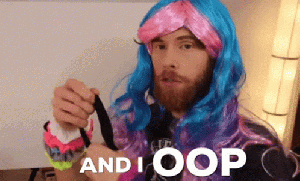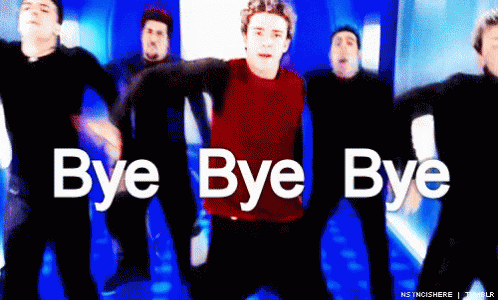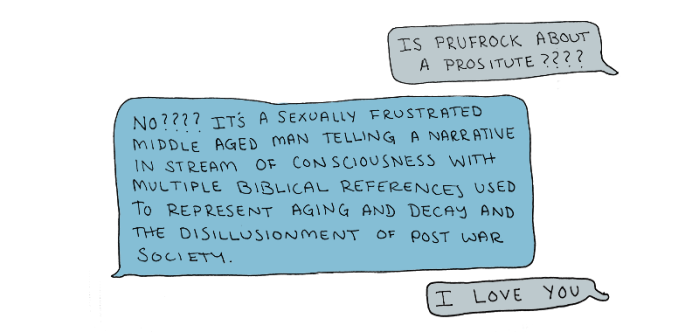If you’ve been on the poetry scene for pretty much any length of time, then the name ‘T.S Eliot’ isn’t exactly a foreign one. but, just to catch you guys up, Eliot is essentially famous for how he redefined poetry and helped establish modernism, transcending us into a new literary era (blah blah). Now, ‘what’s modernism?’ you may ask? (And ’d probably tell you to google it) This is a form of poetry which denies traditionalist ideas originally presented under classicism, and is presented as a movement which acts as a characteristic perception and representation of reality, which experiments with modes of expression, complex themes and issues as well as the abandonment of traditional form and style.
The texts, ‘The love Song of J. Alfred Prufrock’ , ‘A Game of Chess’ from The Waste Land and ‘The Hollow Men’ all display elements of modernism, with his use of fragmentation, self-reflectivity and the exploration of psychological states. These are then utilised and constructed in a way which allows for multiple interpretations, and further contributes to themes and ideas which we are able to regard as wisdom or lessons surrounding the ‘human experience’. Now, I wouldn’t say Eliot honestly has that much advice that would be useful, let alone positive as an outlook on things. So, if you were looking for a laugh I wouldn’t say these lessons are for you. However, he does bring a certain something I think we can all agree we need every now and then, and that is a good old dose of pessimism realism! This is pretty important as it contrasts all those glamorized texts of romanticism and instead acts critically towards notions such as love, society and even comments on how difficult to navigate life really is.
So here’s a glimpse of the life and lessons, told by the man himself, Eliot:
All About Love ❤
As you probably guessed, one of the most prominent themes in Eliot’s work is the theme of love, and no, he doesn’t describe how beautiful and amazing it is. In fact, ‘The Love Song of J. Alfred Prufrock’ and ‘A Game of Chess’ tend to demonstrate the exact opposite, with the overall message we get is that its overrated and relationships are, essentially, meaningless. This isn’t a hard conclusion to come to with the way he displays lifeless relationships through his stylistic choices and aesthetics, as well as his overall negative perception of women as a motif. Now, we can assume there’s some contextual relevance due to the poets own experiences, with his failed first marriage (with the wife eventually entering a permanent residency in a psychiatric facility) and, of course, his rumored homosexual relationship during his youth, so… he may be biased against romance. However, he really shows this within his poems as well. For instance, during ‘The Love Song’, he uses contrast with the initial conformity to romantic expectations, only to completely undermine the audiences assumptions with his use of sudden realism. The title alone demonstrates how Eliot sets up the poem as to develop a certain idea of the themes to be represented, as ‘The Love song of J. Alfred Prufrock’ presents a tone of dramatic monologue, structured as if to be a love letter to a partner. This is further shown within the first few lines, where rhyme and rhythm conform to the traditionalist ideas, such as with “you and I” and “against the sky”. The concept of sound within poetry often connotes to beauty or perhaps even passion, however Eliot manipulates this by creating a broken and irregular rhyme immediately afterwards, where he instead uses “etherized upon a table…half-deserted streets”. Through this, the previously established expectations of the poem are distorted and romanticism is juxtaposed with darker imagery as to abolish the glamorization associated with it. The language used by Eliot may also reflect disillusioned feelings towards relationships and love, as often words such as “overwhelming” and “insidious intent” are displayed. This implies a sense that love is a strong emotion, however it can be consuming, as shown with “overwhelming” and “insidious intent” may be seen as love inflicting harm, reinforcing the notion that love brings pain and romance is idealized. Similarly, ‘a Game of Chess’ indicates a personas lifeless relationship with a lover. This is shown within “Speak to me. Why do you never speak? Speak.”. Eliots demonstration of a modern couples inability to communicate acts critically towards modern society and its lack of love, as it displays a failure to form a connection within the modern era, as they will always be left unsatisfied and demanding.

Not only is all that really great and surely making you hopeful for love, with how much T.S Eliot clearly thinks it sucks and all, but he does go on and reinforce it with his overall portrayal of women with symbolism and imagery. ‘The Love song’ is where the ‘women’ motif comes into play as the society around Prufrock often illustrates women, and not too positively either. Eliot uses a refrain with “the women come and go/talking of Michelangelo”. The consistent repetition of this not only fortifies female stereotypes as to associate “gossip” as they are seen to conversationally discuss the idealized image of a man, however it also shows the unmeetable standards set for a partner, which not only make the male persona feel inadequate in comparison to the esteemed “Michelangelo” figure but also add to the belief that relationships are unsustainable as they will not be enough. Within ‘The Love Song’, the attitude towards women is once more displayed with “I have heard the mermaids singing”. Symbolism is notable through this, as often mermaids are presented as beautiful, mythical (and typically female) figures, so this is able to be interpreted as a demonstration of women within the poem. However, the connotations of “mermaid” followed later by “and we drown” relate to the negative legends where often the mermaids would seduce the men and subsequently drown them. This is then able to applied towards the theme of love and assume to represent women within relationships and Bada-Bing, Bada-Boom, women officially suck and to be in a relationship with one is to essentially “drown”.
Society D:<
I would’ve hoped the emoji gave it away, but no, this will not restore your faith in the world. In fact, T.S Eliot is extremely critical of the world around him, specifically the modern world, and this is evident with Eliots self-reflectivity and overall representation of the personas psych within ‘The Love Song’. The mental representation shown of the persona demonstrates that of someone neurotic and paranoid, as demonstrated through the fragmentation within the poem, as seen through “That is not what I meant at all…No! I am not Prince Hamlet”. The fragmentation shown through the erratic jumps between topics after each break represent the anxious and paranoid behaviour interpreted from the persona, however this acts as a reflection of an individuals response to the societal pressures around them. For instance, “(They will Say: ‘How his hair is growing thin!’)”, with “They will say” indicating Prufrock’s thought process. The personas internal monologue portrays the sense of being overwhelmed as well as his awareness to societies judgment as he assumes the opinions and criticisms of others. Further, the persona demonstrates a feeling of inadequacy with “the women come and go/talking of Michelangelo”. The choice of “Michelango” correlates to the sense of lacking self-worth in comparison as often “Michelangelo” will initiate thoughts of success, legacy and achievements, which the persona understands they will never compete with. Therefore, through the women, as a representation of society, discussing the need for a ‘Michelangelo’ figure, the male persona feels inadequate and lost as he has little significance within the world around him.

He also does a lot of lot self-pitying and all ‘round being a bummer towards the world in ‘The Hollow Men’, where his criticisms towards contemporary society are emphasized with his religious allusion and symbolism. His use of religious allusion can be assumed to be a reflection of his response to modern society and his desire for something greater, as shown within “deaths three kingdoms”, with the “dream kingdom” relating to heaven, the “twilight kingdom” being purgatory, and the repeated “deaths other kingdom”, being hell. The primary repetition of the “other kingdom” demonstrates how the persona would rather choose hell over reality, as the repetition can be seen as an unconscious desire or willingness. The “Hollow Men” acts as an extended metaphor for what the persona views on what humanity has become. For instance, we see the “we are the stuffed men/ headpiece filled with straw”, which develops the imagery of a scarecrow, and the use of inclusive language such as “we” implies modern men or society relate to scarecrows. Through the connotation to scarecrows, we often think of fake, humanoid figures with little purpose rather then be objects, which then reflects on how Eliot perceives how we have evolved in modern society. This semblance of falseness is reinforced by “such deliberate disguises” , where its evident that he holds the belief that society conceals their individual identity and hides behind a mask, lacking individuality that once stood out within communities, as we become more involved and encompassed by modernization. Further the idea of lacking individuality or rather a ‘sheep mentality’ is present with the “headpiece filled with straw” which (if you’ve ever seen the Wizard of Oz) is evident as a metaphor for lacking own intelligence. Through ‘The hollow Men’ Eliot really digs into society and the world he sees around him. And its kind of a bummer, once again, but okay, go off, sis.

T.S Eliots poetry, specifically ‘The Hollow Men’, ‘The love song of J. Alfred Prufrock’ and ‘A Game of Chess’ are all relatively significant when discussing the overarching themes within his works, and from there we can see it centralizes on modernist, abstract ideas such as death, societal criticisms and, of course, love. Its pretty easy to infer from a variety of his works that he has a rather negative perception on almost everything, and authors often write in reflection of themselves, so to assume Eliot utilize the self-reflectivity, analysis of the personas psyche and symbolism to embed these messages wouldn’t exactly be a leap of faith. From the contribution of all of these things, we can see a running theme surrounding these which I think can be applied to our own lives. For instance, love = meaningless and painful, whilst society and everything around us is fake, bland and (going by Eliot) death would be better at this rate! So, if there’s anything we can take away from T.S Eliot’s lessons on the human experience, is that …
Life Sucks.
(But that’s okay)
by S.M.
 First up, he decided he didn’t want to be known as Thomas Stearns Eliot, so he just changed it to T.S. edgy right? He was born in 1888, St. Louis, Missouri, into a well- connected family that was originally from Boston. Because his father was so successful in the business field, was able to attain a good education and got accepted into Harvard University! From there he decided to migrate to England where he spent his life from 1914 until his untimely death in 1965 due to emphysema (a lung condition that damages the alveoli and causes shortness of breath) *glad it wasn’t me*.
First up, he decided he didn’t want to be known as Thomas Stearns Eliot, so he just changed it to T.S. edgy right? He was born in 1888, St. Louis, Missouri, into a well- connected family that was originally from Boston. Because his father was so successful in the business field, was able to attain a good education and got accepted into Harvard University! From there he decided to migrate to England where he spent his life from 1914 until his untimely death in 1965 due to emphysema (a lung condition that damages the alveoli and causes shortness of breath) *glad it wasn’t me*.
 ‘The Wasteland’ is said to remain as ‘one of the finest reflections on mental illness ever written’. When Eliot had a breakdown in 1921, he was advised to take 3 months off of work to let him recover. Through this time period, he described himself as being “neurasthenic”, “tired and depressed” all of which are reflected in the tone of his poetry. Okay, so we don’t actually know EXACTLY how long he was writing this poem for, but the deep and thought provoking lines such as “what have we given?” and “for you only know a heap of broken images” lead us to believe this was one of his most thought-through and meaningful poems he ever wrote.
‘The Wasteland’ is said to remain as ‘one of the finest reflections on mental illness ever written’. When Eliot had a breakdown in 1921, he was advised to take 3 months off of work to let him recover. Through this time period, he described himself as being “neurasthenic”, “tired and depressed” all of which are reflected in the tone of his poetry. Okay, so we don’t actually know EXACTLY how long he was writing this poem for, but the deep and thought provoking lines such as “what have we given?” and “for you only know a heap of broken images” lead us to believe this was one of his most thought-through and meaningful poems he ever wrote.
 It’s no secret that the first World War disrupted pretty much everyone’s lives throughout the 1910s and nobody was ever the same. It was a difficult time for everyone, but it remarkably left Eliot’s creative flow untouched.
It’s no secret that the first World War disrupted pretty much everyone’s lives throughout the 1910s and nobody was ever the same. It was a difficult time for everyone, but it remarkably left Eliot’s creative flow untouched. conformed to traditional structures and created more free verse. This is explored throughout ‘The Wasteland’ as it is comprised of 5 different subsections all containing many of their own stanzas. Also, instead of writing many other poems that each stand on their own like most poets do, he comprised series, each consisting of many individual poems that all fall under one idea or persona/ character. This was also one of the many reasons Eliot stood out as a poet because it definitely was not a popular stylistic choice among other poets of that era.
conformed to traditional structures and created more free verse. This is explored throughout ‘The Wasteland’ as it is comprised of 5 different subsections all containing many of their own stanzas. Also, instead of writing many other poems that each stand on their own like most poets do, he comprised series, each consisting of many individual poems that all fall under one idea or persona/ character. This was also one of the many reasons Eliot stood out as a poet because it definitely was not a popular stylistic choice among other poets of that era. shocked too! Since he had to make money somehow, he supported himself by working as a teacher, banker, and editor. This meant he was only able to write poetry in his spare time but believe it or not he actually preferred it that way! In a 1959 interview with ‘The Paris Review’, he stated that his main jobs actually led him to be a better poet, since it gave him downtime to develop his ideas. He also mentioned that if he had given all his time to poetry, it would have been too much and his life would revolve around only that, making it harder and harder to think of new and creative ideas. The variety and flexibility gave him the fuel to create some of his best work. I know what you’re thinking, I also wish I had that same positive outlook on my lack of free time…
shocked too! Since he had to make money somehow, he supported himself by working as a teacher, banker, and editor. This meant he was only able to write poetry in his spare time but believe it or not he actually preferred it that way! In a 1959 interview with ‘The Paris Review’, he stated that his main jobs actually led him to be a better poet, since it gave him downtime to develop his ideas. He also mentioned that if he had given all his time to poetry, it would have been too much and his life would revolve around only that, making it harder and harder to think of new and creative ideas. The variety and flexibility gave him the fuel to create some of his best work. I know what you’re thinking, I also wish I had that same positive outlook on my lack of free time…
 Yes, you heard me ladies and gents, the French language has other uses than attempting to seduce people. Turns out this was another way for Eliot to cure his writing block, crazy right? I mean it obviously worked because otherwise we wouldn’t be here studying and reading about him today.
Yes, you heard me ladies and gents, the French language has other uses than attempting to seduce people. Turns out this was another way for Eliot to cure his writing block, crazy right? I mean it obviously worked because otherwise we wouldn’t be here studying and reading about him today.




 the breaking of literary tradition at the turn of the 20th century. Some of his most important work The Waste Lands and The Love Song of J. Alfred Prufrock in which many of the literary techniques such as train of thought that is now often viewed as a defining characteristic of the period of modernism was exhibited. The Love Song is read as one long continuous thought from the narrator J. Alfred Prufrock which allowed the reader to follow the mentality of the narrator and allows the reader to explore the inner self of the character. The following text is an extract from the poem:
the breaking of literary tradition at the turn of the 20th century. Some of his most important work The Waste Lands and The Love Song of J. Alfred Prufrock in which many of the literary techniques such as train of thought that is now often viewed as a defining characteristic of the period of modernism was exhibited. The Love Song is read as one long continuous thought from the narrator J. Alfred Prufrock which allowed the reader to follow the mentality of the narrator and allows the reader to explore the inner self of the character. The following text is an extract from the poem: So Eliot’s just continuing to show us how important his work was within the modernism movement through his Avant guard styles of writing which further enforced the idea of him being a pioneer of modernism. This new and experimental form of writing can be seen throughout Eliot’s work and an example of this would be his technique of setting the poem to be interpreted as either a real location or a mental state reflecting the subconscious of a person. This example can be seen in The Love Song of J.Alfred Prufrock in the line, “women come and go talking of Micheal Angelo.”. While portraying the physical setting of the poem Eliot also depicts Prufrocks mental state as Micheal Angelo is the person Prufrock desires to become and the persona he will adapt in his upcoming social interactions. His experimentation in his work just further established the new and innovative ways of modernism as opposed to traditional text that was seen before the turn of the 20th century.
So Eliot’s just continuing to show us how important his work was within the modernism movement through his Avant guard styles of writing which further enforced the idea of him being a pioneer of modernism. This new and experimental form of writing can be seen throughout Eliot’s work and an example of this would be his technique of setting the poem to be interpreted as either a real location or a mental state reflecting the subconscious of a person. This example can be seen in The Love Song of J.Alfred Prufrock in the line, “women come and go talking of Micheal Angelo.”. While portraying the physical setting of the poem Eliot also depicts Prufrocks mental state as Micheal Angelo is the person Prufrock desires to become and the persona he will adapt in his upcoming social interactions. His experimentation in his work just further established the new and innovative ways of modernism as opposed to traditional text that was seen before the turn of the 20th century. experimentation seen throughout his work include his use of different languages including German as seen in the line in the first section of The Waste Lands, “Bin gar keine Russin, stamm’ aus Litauen, echt deutsch.” And the use of multiple voices as seen through each section of The Waste Lands giving access to multiple voices as seen through narrators and voices such as, The Fisher King, The Great Prophet and at some point what appears to be Eliot standing in for all of humanity. These points further reinforce the changing time within literature and much like a reflection of real life, a break from tradition and the beginning and rearranging of new structures, culture and beliefs.
experimentation seen throughout his work include his use of different languages including German as seen in the line in the first section of The Waste Lands, “Bin gar keine Russin, stamm’ aus Litauen, echt deutsch.” And the use of multiple voices as seen through each section of The Waste Lands giving access to multiple voices as seen through narrators and voices such as, The Fisher King, The Great Prophet and at some point what appears to be Eliot standing in for all of humanity. These points further reinforce the changing time within literature and much like a reflection of real life, a break from tradition and the beginning and rearranging of new structures, culture and beliefs. found in novels and is in episode titles in television including, Beverly Hills 91210, Sports Night and Small World. So next time you hear the line you can think back on this blog and think, “Oh yeah I know where that’s from!”, so you’re welcome.
found in novels and is in episode titles in television including, Beverly Hills 91210, Sports Night and Small World. So next time you hear the line you can think back on this blog and think, “Oh yeah I know where that’s from!”, so you’re welcome. Practical Cats which was a book of poetry originally made for his godchildren each poem were all unrelated plot-wise however they do have one thing in common that’s rights gals CATS. Some of the poems of the book that were incorporated into the play through turning them into songs or being the names of the characters such as, “The Naming of the cats”, “Old Deuteronomy” and “Gus the Theatre cat”. Eliot’s poetry being adapted into broadways longest-running play demonstrating his long-standing legacy within modern-day media and pop culture.
Practical Cats which was a book of poetry originally made for his godchildren each poem were all unrelated plot-wise however they do have one thing in common that’s rights gals CATS. Some of the poems of the book that were incorporated into the play through turning them into songs or being the names of the characters such as, “The Naming of the cats”, “Old Deuteronomy” and “Gus the Theatre cat”. Eliot’s poetry being adapted into broadways longest-running play demonstrating his long-standing legacy within modern-day media and pop culture. trousers rolled,”, signifying his detached earnestness that is reflected in many of today’s hipsters who symbolise their rejection of modern consumerism by thrift-shopping and waring pieces of clothing outside the mainstream like trucker hats, alternative glasses and unbranded clothing. Also both hipsters Prufrock share the same associated setting that each of them lives in yet despise, the city as Prufrock describes has a skyline, “like a patient etherised upon a table,” further demonstrating the similarities shared between the fictional character and the modern subculture. So the next time you encounter a fedora-wearing, Starbucks drinking and indie band listening individual, maybe introduce them to our very good friend J.Alfred Prufrock.
trousers rolled,”, signifying his detached earnestness that is reflected in many of today’s hipsters who symbolise their rejection of modern consumerism by thrift-shopping and waring pieces of clothing outside the mainstream like trucker hats, alternative glasses and unbranded clothing. Also both hipsters Prufrock share the same associated setting that each of them lives in yet despise, the city as Prufrock describes has a skyline, “like a patient etherised upon a table,” further demonstrating the similarities shared between the fictional character and the modern subculture. So the next time you encounter a fedora-wearing, Starbucks drinking and indie band listening individual, maybe introduce them to our very good friend J.Alfred Prufrock. T.S Eliot was a revolutionary poet around during the 20th century, with his poems captivating audiences, causing them all to ask, “what am I reading?” His confusing writing prompted the evolution of the poetic genre and the making of a new style, modernism. Most modernist art focuses on making fun of the works of the past for being too ‘simple’, ‘boring’ or not ‘hip’. Either that or it was just an excuse for poets to make their medium even more confusing and bonkers, and to give them free reign over references to the Shakespeares and Edgar Allan Poes of the past to point out how stupid they were! There are tons of things that can show how he was a modernist within his writing and this post will go through a couple in his two most recognisable poems, The Love Song of J. Alfred Prufrock or just “Love Song” (as the actual name is a bit of a mouthful) and The Wasteland known for being one of the longest poems ever written, clocking in at about 20 PAGES!?!? Most poems are barely one, but go off man.
T.S Eliot was a revolutionary poet around during the 20th century, with his poems captivating audiences, causing them all to ask, “what am I reading?” His confusing writing prompted the evolution of the poetic genre and the making of a new style, modernism. Most modernist art focuses on making fun of the works of the past for being too ‘simple’, ‘boring’ or not ‘hip’. Either that or it was just an excuse for poets to make their medium even more confusing and bonkers, and to give them free reign over references to the Shakespeares and Edgar Allan Poes of the past to point out how stupid they were! There are tons of things that can show how he was a modernist within his writing and this post will go through a couple in his two most recognisable poems, The Love Song of J. Alfred Prufrock or just “Love Song” (as the actual name is a bit of a mouthful) and The Wasteland known for being one of the longest poems ever written, clocking in at about 20 PAGES!?!? Most poems are barely one, but go off man. third line to come out of nowhere, and slap the audience in the face like a stop sign during a storm. This is a direct nod to the typical rhyming couplet structure, that Eliot turns into a throuplet, cause he’s a modernist, and he wants to embrace these new ideas and show how the old ones were stupid. Attempting to get back on track, Prufrock begins a new couplet, talking about the beauty of the streets in which they reside, “Let us go, through certain half-deserted streets/The muttering retreats,” the atmosphere comes back, just ignore what he said before I’m sure it was nothing. He then subverts expectations again by bringing up talks of one night stands in hotels, which I’m sure really gets the ladies going, ayy Prufrock? The unromantic ruination of the romantic rhyming couplets informs the audience that this isn’t your typical “Love Song” oh no, this is a modernist’s take on it, and there sure isn’t much too romantic here…
third line to come out of nowhere, and slap the audience in the face like a stop sign during a storm. This is a direct nod to the typical rhyming couplet structure, that Eliot turns into a throuplet, cause he’s a modernist, and he wants to embrace these new ideas and show how the old ones were stupid. Attempting to get back on track, Prufrock begins a new couplet, talking about the beauty of the streets in which they reside, “Let us go, through certain half-deserted streets/The muttering retreats,” the atmosphere comes back, just ignore what he said before I’m sure it was nothing. He then subverts expectations again by bringing up talks of one night stands in hotels, which I’m sure really gets the ladies going, ayy Prufrock? The unromantic ruination of the romantic rhyming couplets informs the audience that this isn’t your typical “Love Song” oh no, this is a modernist’s take on it, and there sure isn’t much too romantic here… modernist mention of Hamlet may have inspired director Gregory Doran to make a 2009 film adaptation, starring the ever popular David Tennant and his friend Horatio played by someone? Idk who.
modernist mention of Hamlet may have inspired director Gregory Doran to make a 2009 film adaptation, starring the ever popular David Tennant and his friend Horatio played by someone? Idk who.
 The mention of seeing the “violet hour” refers to his ability to see in the future with “wrinkled female breasts,” referring to him being transformed into a woman (didn’t prophesied that did ya?). Eliot’s representation of the biblical figure seems to paint him as some old blind geezer with a lot of weird kinks, definitely different from the original, who prophesied Tiresias’s future, which he promptly ignored and then went off and did it anyway!
The mention of seeing the “violet hour” refers to his ability to see in the future with “wrinkled female breasts,” referring to him being transformed into a woman (didn’t prophesied that did ya?). Eliot’s representation of the biblical figure seems to paint him as some old blind geezer with a lot of weird kinks, definitely different from the original, who prophesied Tiresias’s future, which he promptly ignored and then went off and did it anyway!
 In the small snippet on the right, we start in some sort of restaurant with Prufrock and his date, suddenly we’re outside with the “lonely men” and their “pipes.” Then we’re back inside with an awkward moment of silence and then Prufrock transforms into a crap scuttling along a lonely beach. WHO, WHAT, WHEN, WHERE, WHY, HOW?!?!
In the small snippet on the right, we start in some sort of restaurant with Prufrock and his date, suddenly we’re outside with the “lonely men” and their “pipes.” Then we’re back inside with an awkward moment of silence and then Prufrock transforms into a crap scuttling along a lonely beach. WHO, WHAT, WHEN, WHERE, WHY, HOW?!?!





 T.S. Eliot: I keep other people awake at night
T.S. Eliot: I keep other people awake at night
 The last stanza of The Burial of the Dead focuses on the streets of London. The narrator described a “crowd” as flowing “over London Bridge”. He then stated he “had not thought death had undone so many”. He seems to be referencing the society preceding WWI, and believes that the casualties have had an overwhelmingly negative influence on society and the individuals who lost relatives and partners. They were holding on by a thread during the war, trying to cope with the idea of possibly losing their friend, husband, relative, etc. But upon discovering the death of that special someone finally caused them to fall apart and become “undone”.
The last stanza of The Burial of the Dead focuses on the streets of London. The narrator described a “crowd” as flowing “over London Bridge”. He then stated he “had not thought death had undone so many”. He seems to be referencing the society preceding WWI, and believes that the casualties have had an overwhelmingly negative influence on society and the individuals who lost relatives and partners. They were holding on by a thread during the war, trying to cope with the idea of possibly losing their friend, husband, relative, etc. But upon discovering the death of that special someone finally caused them to fall apart and become “undone”.

 In the third stanza of The Waste Land, the readers are introduced to “Madame Sosostris”, a gypsy who reads the fortunes of other people through Tarot cards. The narrator’s card is revealed to be the “Phoenician Sailor”, who is described to have “pearls” for “his eyes”. OHHHHHH symbolic reading time! Pearls symbolise purity, integrity and generosity. Since there’s been heaps of allusions to WWI, we could take a fair guess into believing that these Tarot cards may also allude to the struggles and impacts of WWI. The generosity represented in the pearls could signify the soldiers’ devotion to serving in the war, and them giving everything up to serve. On this Tarot card, there is a little more visual imagery; this sailor is pictured to have “drowned”. This enhances the notion of soldiers being so generous that they agreed to potentially sacrifice themselves for their country.
In the third stanza of The Waste Land, the readers are introduced to “Madame Sosostris”, a gypsy who reads the fortunes of other people through Tarot cards. The narrator’s card is revealed to be the “Phoenician Sailor”, who is described to have “pearls” for “his eyes”. OHHHHHH symbolic reading time! Pearls symbolise purity, integrity and generosity. Since there’s been heaps of allusions to WWI, we could take a fair guess into believing that these Tarot cards may also allude to the struggles and impacts of WWI. The generosity represented in the pearls could signify the soldiers’ devotion to serving in the war, and them giving everything up to serve. On this Tarot card, there is a little more visual imagery; this sailor is pictured to have “drowned”. This enhances the notion of soldiers being so generous that they agreed to potentially sacrifice themselves for their country.













